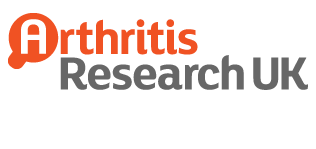 Arthritis Research UK seeks to fund a number of projects aimed at investigating innovative approaches to enhance the education of health care professionals and the public on musculoskeletal disorders. They are pleased to issue a call for expressions of interest in research in this area. This call will be in relation to particular questions and research topics – please make sure you read the document, Call for research proposals in the education of health professionals and the public 2012, before you apply.
Arthritis Research UK seeks to fund a number of projects aimed at investigating innovative approaches to enhance the education of health care professionals and the public on musculoskeletal disorders. They are pleased to issue a call for expressions of interest in research in this area. This call will be in relation to particular questions and research topics – please make sure you read the document, Call for research proposals in the education of health professionals and the public 2012, before you apply.
The application process is in three stages, as follows:
Stage 1: Submission of an intent form via our on-line application system, deadline Wednesday 19 September 2012
Stage 2: Shortlisted applicants from Stage 1 may be invited to attend a review/mentoring workshop in January 2013. Those subsequently invited to submit a full application will be informed of this by 27 February 2013.
Stage 3: Submission of a full application form, for those invited to submit only, again via our online application system, deadline Wednesday 17 April 2013. Provisional notification of final awards will be made by 26 July 2013.
Those interested in submitting an intent form are advised to speak beforehand to Keir Windsor, Education Manager, on 01246 558033. Technical queries relating to the application process or timing should be directed to Rowan Roberts, Education Awards Administrator, on 01246 558033 or r.roberts@arthritisresearchuk.org
The RKE Operations team can help you with your application.











 Missing Persons Indicator Project Recruitment
Missing Persons Indicator Project Recruitment Celebrating our Research: Postgraduate Research Showcase 2026
Celebrating our Research: Postgraduate Research Showcase 2026 Nursing Research REF Impact in Nepal
Nursing Research REF Impact in Nepal Fourth INRC Symposium: From Clinical Applications to Neuro-Inspired Computation
Fourth INRC Symposium: From Clinical Applications to Neuro-Inspired Computation ESRC Festival of Social Science 2025 – Reflecting back and looking ahead to 2026
ESRC Festival of Social Science 2025 – Reflecting back and looking ahead to 2026 3C Event: Research Culture, Community & Cookies – Tuesday 13 January 10-11am
3C Event: Research Culture, Community & Cookies – Tuesday 13 January 10-11am ECR Funding Open Call: Research Culture & Community Grant – Application Deadline Friday 12 December
ECR Funding Open Call: Research Culture & Community Grant – Application Deadline Friday 12 December MSCA Postdoctoral Fellowships 2025 Call
MSCA Postdoctoral Fellowships 2025 Call ERC Advanced Grant 2025 Webinar
ERC Advanced Grant 2025 Webinar Horizon Europe Work Programme 2025 Published
Horizon Europe Work Programme 2025 Published Update on UKRO services
Update on UKRO services European research project exploring use of ‘virtual twins’ to better manage metabolic associated fatty liver disease
European research project exploring use of ‘virtual twins’ to better manage metabolic associated fatty liver disease